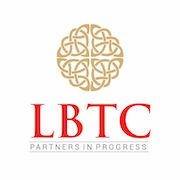This course sets out to describe and explain the essential elements of the international work towards the eradication of financial crime in connection with money laundering and the financing of terrorist activities.

This course sets out to describe and explain the essential elements of the international work towards the eradication of financial crime in connection with money laundering and the financing of terrorist activities.
It defines money laundering and terrorist financing, as well as identifies the broad parameters for knowing one’s customer, no matter which industry.
The course also identifies the three stages of money laundering and how they can be used in a customer due diligence (CDD) program. It outlines the main regulatory and standard-setting organizations, including their background and work domain. It also contrasts and compares key AML regulation from the US, the EU and the UK.
This course goes in-depth with two complicated areas of AML work and encourages participants to adopt tried and tested measures for their discovery and management.
It analyses how domestic and international trade is being subverted by money laundering activities and how serious a threat this is.
The course also classifies techniques used to conceal the true origin and beneficial ownership of assets and invites a critical analysis of the vulnerabilities that are exploited.
It distinguishes between the major components of the risk-based approach and requires a critical eye to establish how they differ. It also develops an actionable AML plan in alignment with the Financial Action Task Force (FATF) and based on its five pillars.
The course will wrap with a summary of the key learning points, followed by an action planning exercise with a view to apply the acquired knowledge and skills immediately upon your return to work. Post-course support is also available in relation to the implementation of your action plan, up to six (6) months following course completion.
Learning Outcomes:
Upon completion of this course, you will be able:
London Business Training Consulting (LBTC) is accredited by the British Accreditation Council (BAC) – a comprehensive quality assurance scheme for independent further and higher education in the United Kingdom (UK). BAC accreditation is recognised the world over as the clearest mark of educational quality in the private sector.
The BAC has been providing quality assurance for independent further and higher education in the UK for more than 35 years. Today students and governments all over the world recognise the BAC name as one the clearest indications of educational quality in the private sector.
A full member of the European Association for Quality Assurance (ENQA) and the International Network for Quality Assurance (INQAAHE) the BAC currently accredits more than 230 leading institutions in 19 countries.
For delegates from outside the UK, applying to an accredited institution is a mandatory requirement for a successful short-term study visa application. Download LBTC’s accreditation certificate.
© 2025 coursetakers.com All Rights Reserved. Terms and Conditions of use | Privacy Policy